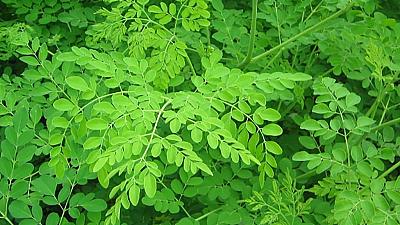This research aims to study the effect of nano sized Moringa oleifera on adsorption of Cd2+ ions from aqueous solution. The investigated biosorbent was characterized by FTIR, SEM, TEM, XRD and EDS techniques. The influence of pH, temperature, adsorbent dosage, contact time, metal ion concentration and chemical treatment of biomass were investigated. The maximum capacity (qm) of Cd2+ ions biosorption by Moringa oleifera was 40.53 mg g−1. The removal efficiency was 93.74 %. The amount of Cd2+ ions adsorbed increases with increasing in adsorbent dosage and metal ion concentration. A biosorption of Cd2+ ion slightly increases as increasing the temperature. IR data showed that the main functional groups are responsible for Cd2+ ions binding in the biosorption process. Thermodynamic studies confirmed that the biosorption process is endothermic and the positive value of ΔG° indicated that the ion-exchange mechanism applies in the biosorption. The sorption process was fitted to pseudo second order kinetics. The Freundlich isotherm has a good fit with the experimental data compared to Langmuir isotherm. Based on the obtained results, Moringa oliefera is available agricultural, low cost and environment friendly biosorbent for the removal of metal ions from aqueous environment.


